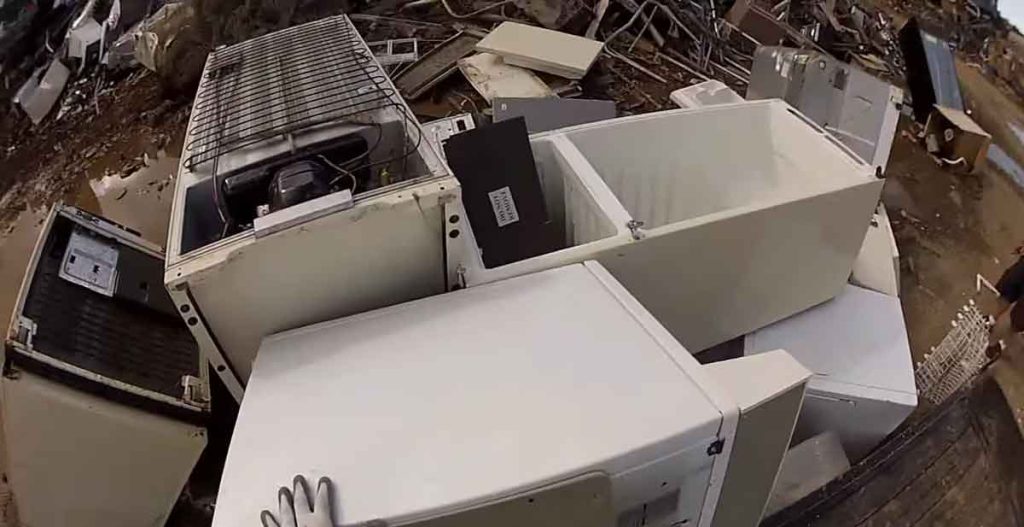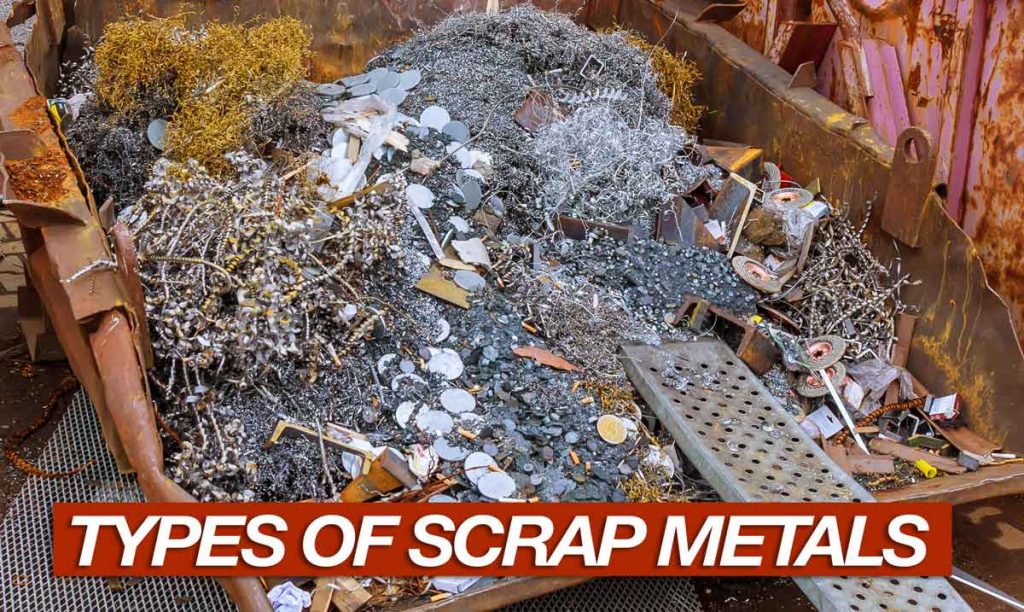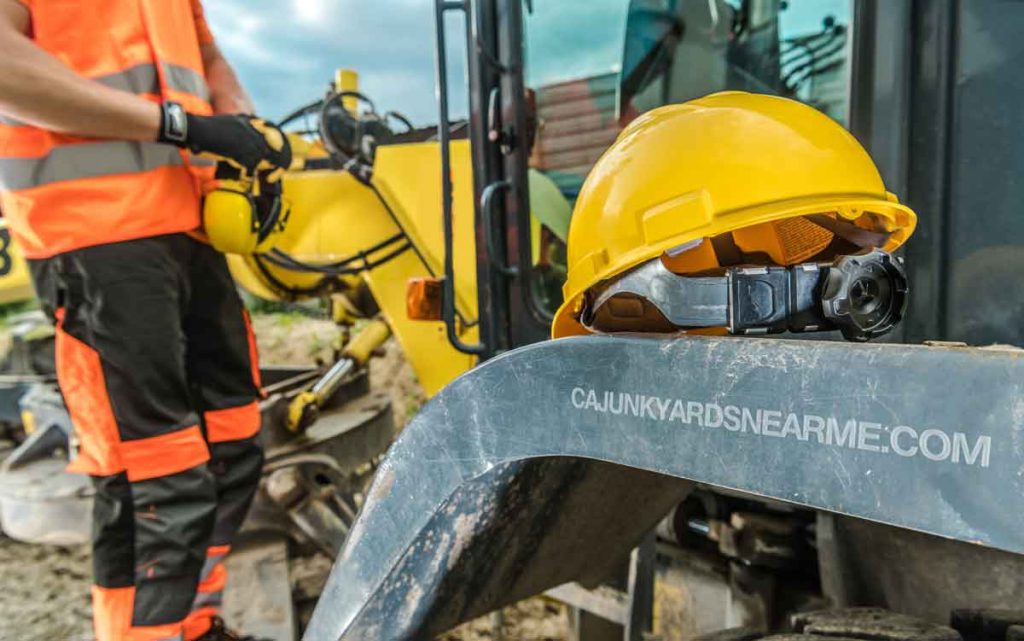Scrap yards play a pivotal role in recycling, transforming old cars and metal goods into valuable materials. These hubs of resourcefulness contribute to environmental sustainability by processing scrap metal efficiently. By understanding the ins and outs of scrap metal yards, also known as salvage yards, you can appreciate their importance in conserving natural resources and reducing waste.
From local economies to global markets, scrapping yards are key players in the circular economy. They not only help keep our planet cleaner but also offer economic opportunities for communities worldwide. Dive into the world of scrap yards where every piece of metal has a second life waiting to be discovered.
Understanding Scrapping Yards
Differentiating Scrap Facilities
Scrap yards come in different forms. Some focus on commercial clients. Others serve industrial businesses or everyday consumers. Each type has its own way of working.
Commercial scrap facilities often deal with large amounts of waste from businesses. They handle big jobs and have the space for it. Industrial ones may process scraps from factories or construction sites. These are heavy-duty places with lots of machines.
Consumer-focused yards are where you might go to drop off old items. They take things like bikes, pots, and pans. Some scrap yards only deal with metal. Others accept mixed materials including plastic and paper.
Small-scale operations can be easier to work with if you have a little bit of scrap. Large processing plants manage huge volumes daily.

Metals and Electronics
Scrap yards collect many types of metals:
- Steel
- Copper
- Aluminum
They also take electronic waste like old phones, computers, and TVs. Even if you're just starting out in metal recycling, it's important to know about ferrous and non-ferrous metals. Ferrous metals contain iron; they stick to magnets. Non-ferrous metals do not stick to magnets; examples include copper and aluminum.
Ensuring Fair Transactions
When selling scrap, you want a fair deal. Good scrap yards use certified scales for accurate weight measurement. This ensures that customers get paid properly for their scraps based on weight.
Prices should reflect current market rates which change often due to supply and demand factors. Always ask for a receipt after selling your scrap.This is proof of the transaction details: what was sold, how much it weighed, and how much money was exchanged.

Types of Metals in Scrapping
Base Metals Overview
Scrap metal yards often collect auto junk and other salvage materials. base metals like iron, copper, and nickel. These are common in many items. They play a big role in manufacturing. For instance, copper is used for wiring due to its conductivity.
The prices of these metals can change often. This happens because of supply and demand across the world.
Electronics Recycling
Recycling electronics is important for safety and the environment. Devices hold personal data that must be destroyed securely.
Inside old electronics, there are precious metals too. Gold and silver, items that a magnet doesn’t stick to, are found on printed circuit boards in junkyards.
Proper disposal helps protect our planet from harmful waste.
Vehicle Metal Processing
Old cars go through a process before they become scrap metal. First, they take out valuable parts like catalytic converters.
They also have to remove any dangerous fluids carefully to meet certain standards.

Health and Safety Concerns
Hazard Awareness
Scrap yards often contain hazardous materials. Workers must know about toxic substances like lead, mercury, and asbestos. These can be harmful to health. In the context of scrap metal recycling, it is crucial to recognize these dangers early on.
Reporting any find of hazardous material is a key step. This helps keep everyone safe. Long-term exposure to such toxins can lead to serious health issues. Proper handling is essential for safety.
Safety Protocols
Workers in scrapping yards need the right gear for protection. They should wear gloves, goggles, and other necessary items as part of their Personal Protective Equipment (PPE). Each piece of PPE has specific requirements that must be met.
Employees also receive training on safely operating machinery. This reduces the risk of accidents at work. Emergency response plans are in place too. These plans help workers know what to do if someone gets hurt or there's an emergency.
Market Trends and Prices
Global Market Impact
The scrap market is a global affair. International trade policies heavily influence scrap prices. When countries change these policies, it can make selling scraps more or less profitable. For example, if a country hikes up taxes on imported metal, local scrapping businesses might get better prices for their materials.
Environmental rules also play a big part in this industry. They shape how yards handle and process scrap. Stricter regulations often mean that yards need to invest more in safe practices.
- Influence of policy changes on pricing
- The role of import/export trends
- Environmental laws affecting processing methods
These factors result in an ever-changing landscape for those dealing with scraps.
Technology in Recycling
Technology has revolutionized scrap metal recycling at scrap yards. New machines use magnets and sensors to sort metals faster than humans can. When dealing with junk in salvage yards, this method means less time spent sorting and lower labor costs.
Automation helps sellers too. It makes the whole process quicker which can lead to better offers from buyers looking to purchase large quantities of material on short notice.
Software solutions are also important now:
- They help manage inventory.
- They ensure compliance with complex regulations.
Both technological advancements in the field of scrap metal recycling have made the process more efficient and cost-effective than ever before.
Yards that embrace these technologies stay ahead of the curve, offering better services to their clients while keeping costs down.
The Scrapping Process
Collection and Separation
Scrap yards start by collecting Scrap metal yards specialize in recycling various materials, including auto junk. Workers sort these items on manual picking lines. They grab and separate metals from other debris. This is a hands-on job. It needs sharp eyes and quick decisions.
Automated systems are also used in scrapping yards. These machines can sort faster than humans. They use magnets, air jets, or vibrating plates to divide materials.
Keeping trash out of the recycling stream is vital. Contamination makes recycled materials less pure, less valuable.
Community programs help gather more scrap for processing.
- People drop off metal items at collection points.
- Trucks then bring them to scrapping facilities.
Melting and Purification
After sorting comes melting down metals in big furnaces. There are different types of furnaces for this job:
- Induction furnaces
- Cupola furnaces
Each type has its own way of heating up scrap until it melts.
Chemicals help clean the melted metal. This step removes unwanted elements that might be mixed in with the metal.
Melting uses a lot of energy. Scrap yards always look for ways to do this more efficiently.
Solidifying to Manufacturing
The molten metal eventually cools down into new shapes like ingots or sheets. Quality control is key here. Experts check the recycled metals against industry standards.
Recycled metals from salvage yards then go back into making new products.
- Cars
- Cans
- Construction materials
This closes the loop on recycling and saves resources.
Environmental and Economic Roles
Sustainability Contributions
Scrap yards play a vital role in protecting the environment. By recycling materials, they help reduce greenhouse gas emissions. This is because making products from recycled materials needs less energy than mining new raw materials.
- Recycling metals at scrap metal recycling yards saves about 75% of the energy it would take to create new metals.
They also conserve natural resources by reusing what we already have. In this way, scrap yards are key parts of the circular economy model.
This model keeps resources in use for as long as possible. It extracts the maximum value from them while in use and recovers and regenerates products and materials at the end of each service life.
Economic Significance
Scrap yards are not just about recycling; they're also important for our economy. They create jobs for people who work with recycled goods.
- The recycling sector employs thousands across various roles, from collection to processing.
These businesses contribute to local economies through taxes and business revenue too.
By providing cheaper, recycled materials, scrap yards help lower production costs for many industries.
This can lead to more affordable products for consumers like us.
Finding Local Scrap Yards
Directory Utilization
Using online directories is a smart way to find local scrap yards. These directories list various yards and the services they offer. It's important for facilities to keep their information current. This helps customers find them easily.
Directories can also spark competition among scrap yards. They compare services and prices side by side. Even if you're just a customer, you can benefit from this rivalry with better options at scrap metal yards.
Proximity Searches
When searching, proximity is key. Close-by scrap yards save you money on transport costs. It's cheaper to move your scrap over shorter distances.
Choosing a nearby yard also shows care for your community’s environment. Less travel means fewer emissions from vehicles transporting the materials.
Common Misconceptions
Size Myths
Many people think bigger scrap yards are better. This is not always true. A yard's size does not tell you about its service quality. Small and large facilities can be equally efficient.
Some small yards may offer specialized services that big ones do not. For a scrap metal yard, it's more important to match the market value of junk and salvage materials. community needs than to be big.
For example, a compact yard in a small town might serve its residents perfectly. Meanwhile, a large facility in an industrial area handles bigger volumes of scrap.
Summary
Scrap yards play a pivotal role in recycling, shaping both environmental sustainability and economic dynamics. This article provided insights into the diverse types of metals processed, the meticulous scrapping procedures, and the health and safety protocols that are vital for workers. Market trends and pricing structures were also dissected, revealing the fluctuating nature of this industry. The environmental and economic impacts underscored the importance of scrap yards in conserving resources and reducing waste.
Local scrap yards serve communities by offering convenient recycling options while debunking common misconceptions about the industry. It's crucial for consumers to recognize their part in this eco-friendly cycle. We encourage readers to contribute to a greener planet by engaging with local scrapping services. Start now—locate your nearest salvage yard and become an active participant in metal recycling efforts for a sustainable future.
Frequently Asked Questions
What are scrap yards?
Scrap metal yards, often referred to as salvage yards or junkyards, are facilities where various materials, primarily metals, are collected, processed, and recycled for reuse.
Which types of metals can I find in scrap yards?
You can typically find ferrous metals like steel and iron as well as non-ferrous metals such as copper, aluminum, brass, and stainless steel in scrap yards.
Are there health risks associated with scrapping?
Yes. Potential health risks include injuries from sharp objects or heavy lifting and exposure to hazardous substances. Safety measures must be followed.
How do market trends affect scrap prices?
Market trends influence supply and demand which directly impacts the prices offered for different types of scrap metal at any given time.
What is involved in the scrapping process?
The scrapping process involves collecting, sorting by type and quality of material, processing (such as shredding or shearing), then selling it to end-users or recyclers.
Why are scrap yards important economically and environmentally?
Scrap yards play a key role in recycling waste materials which conserves natural resources while also providing economic benefits through job creation and resource recovery.
How can I locate nearby scrap yards?
Local directories online or community boards often list nearby scrapyards; alternatively, use our website since we are dedicated to locating recycling centers.
How can I identify if a piece of scrap metal is worth recycling?
A simple test for recyclable metal is to see if a magnet sticks to it. If the magnet doesn't stick, the metal is likely nonferrous, which means it could be more valuable to recycle. Remember, different types of metal have different values, so it's important to separate your scrap materials accordingly.
What's the difference between ferrous and nonferrous scrap metal?
Nonferrous metals include copper, aluminum, lead, and other metals that don't contain significant iron. They can be more valuable in the scrapping process. Ferrous metals, which include iron and steel, are magnetic and while they might sell for less, they still have value at the scrap yard.
Can I make money at the scrap yard?
Yes, scrap yards will pay you for your scrap metal. The payout depends on the type of metal and its weight. Prices fluctuate based on the current market value of the metal.
Are there specific regulations about recycling scrap metal?
Yes, recycling scrap metal must comply with local and national laws. It's always a good idea to understand your local regulations before selling your scrap metal. Yards in Phoenix, for example, may have different rules than yards in another city or state.
Can I find recycling rates for scrap metal online?
Yes, some services like the iScrap App offer an up-to-date listing of scrap metal prices per pound at various yards. Remember though, that real-time prices can fluctuate due to the market, so it may be a good idea to call the yard in advance to confirm their current rates.